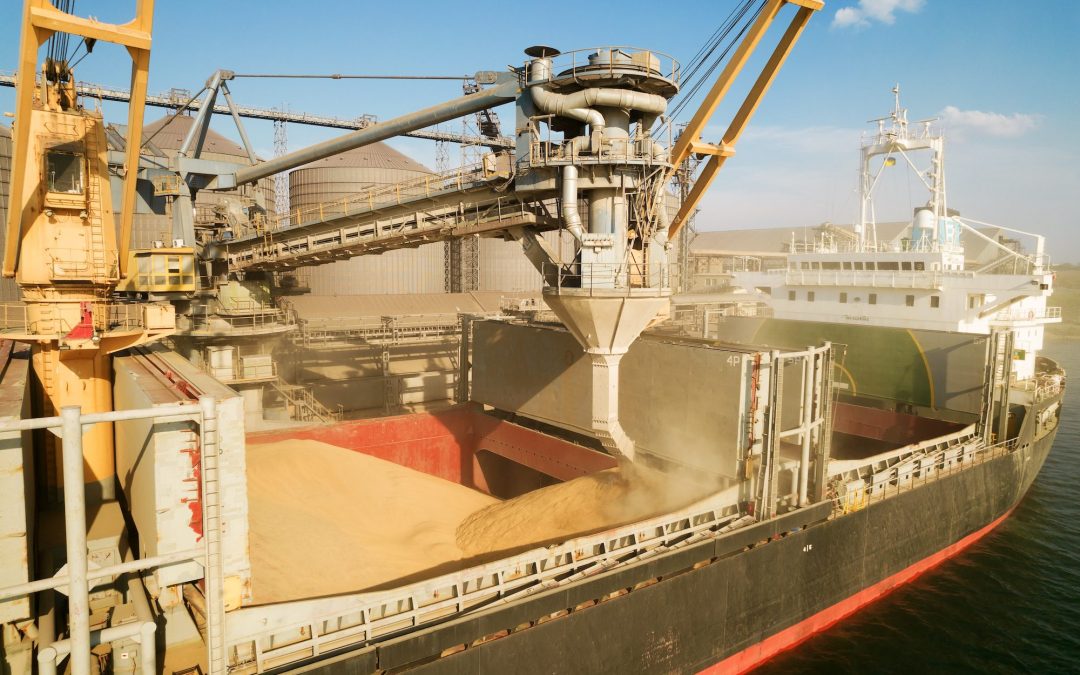Ukraine’s Western allies on Friday urged Russia to allow Kyiv to ship grain out to the world as the four-month-old war threatened to bring hunger to countries far away from the battlefields.
Moscow for its part accused the West of waging economic warfare on Russia by attempting to isolate it with sanctions imposed over the Feb. 24 invasion.
And in a further indication that the Kremlin was in no mood for compromise, Russia’s ambassador to London told Reuters that its troops would defeat Ukrainian forces in the whole of the eastern Donbas region and were unlikely to withdraw from a swathe of land across the southern coast.
Sooner or later, Ambassador Andrei Kelin said, Ukraine would have to decide whether to strike a peace deal with Russia or “continue slipping down this hill” to ruin.
On the frontlines in the Donbas, officials reported continued Russian shelling of towns and villages ahead of an anticipated new push to grasp more territory.
“NOT YOUR COUNTRY”
At a meeting of G20 foreign ministers in Bali, Indonesia, some of the staunchest critics of the Russian invasion confronted the Kremlin’s top diplomat Sergei Lavrov.
High on their concerns was getting grain shipments from Ukraine out through ports blockaded by Russia’s presence in the Black Sea and naval mines. Ukraine is a top exporter and aid agencies have warned that countries in Africa, the Middle East and elsewhere face devastating food shortages if supplies do not reach them.
U.S. Secretary of State Antony Blinken urged Moscow to let Ukrainian grain out to the world, a Western official said.
“He addressed Russia directly, saying: ‘To our Russian colleagues: Ukraine is not your country. Its grain is not your grain. Why are you blocking the ports? You should let the grain out,’” the official said.
Earlier, Lavrov had berated the West, saying that instead of focusing on how to tackle global economic problems at the meeting, ministers had embarked on “frenzied criticism” of Russia over the Ukraine conflict.
Ukrainian Foreign Minister Dmytro Kuleba, in a virtual address to the meeting, said the international community should not allow Russia to blackmail the world with high energy prices, hunger and security threats.
The meeting’s host, Indonesian Foreign Minister Retno Marsudi, said the repercussions of the war, including rising energy and food prices, would hit poor countries the hardest.
Reintegration of Ukraine and Russia’s grain and fertilizer into supply chains was critical, she said.
“It is our responsibility to end the war sooner than later and settle our differences at the negotiating table, not at the battlefield,” Retno said.
Ukrainian President Volodymyr Zelenskiy, in a remote address to Slovenia’s parliament, said food shortages would lead to increased migration to Europe in what he saw as part of a Russian plan to destabilize the continent.
“Russia is blocking our ports, preventing the transportation of grain. Famine will cause large migration flows in the future. Because of this, we are working to save the countries of Africa, and the Middle East and try to feed these people,” he said.
“DYING IN HOUSES”
On Thursday, Russian President Vladimir Putin indicated that the prospects of finding a solution to the conflict were dim right now, saying Russia’s campaign in Ukraine had barely got started.
The biggest conflict in Europe since World War Two has killed thousands, displaced millions and flattened Ukrainian cities.
Russia calls it a “special military operation” intended to degrade Ukraine’s military and root out people it sees as dangerous nationalists. Ukraine and its Western allies say Russia is engaged in an unjustified land grab.
After failing to quickly take the capital Kyiv, Russia is now waging a war of attrition in the Donbas, Ukraine’s industrial heartland made up of Luhansk and Donetsk provinces.
Ambassador Kelin’s remarks, in an interview with Reuters in his London residence, gave an insight into the potential Russian endgame in Ukraine – essentially a forced partition that would leave Russia’s former Soviet neighbor shorn of more than one fifth of its post-Soviet territory.
“We are going to liberate all of the Donbas,” Kelin said.
“Of course it is difficult to predict the withdrawal of our forces from the southern part of Ukraine because we have already experience that after withdrawal, provocations start and all the people are being shot and all that.”
Since the invasion, Russian forces have seized control of a big chunk of territory across Ukraine’s southern flank above Crimea, which Russia annexed in 2014.
Kelin said the West did not understand the true causes of the conflict and had ignored Russia’s concerns.
“Is escalation possible? Of course,” he said.
Luhansk’s governor said Russian forces were indiscriminately shelling villages, towns, and cities on Friday.
“They are not stopped even by the fact that civilians remain there, dying in houses and yards. They hit houses, every building that seems to them a possible fortification,” Governor Serhiy Gaidai said.
The situation was similar in settlements in Donetsk. Moscow declared on Sunday it had “liberated” Luhansk and now plans to capture parts of Donetsk it does not already control.
Reuters could not independently verify the battlefield accounts.
In a post on Telegram messaging app, Zelenskiy said he visited troops along the Dnipropetrovsk frontline in central Ukraine.
“Spoke with our defenders, presented them with awards. Their mood is determined, in their eyes – confidence in our victory. Thank you for fighting for the freedom of Ukraine!” he said.
Source: gCaptain





